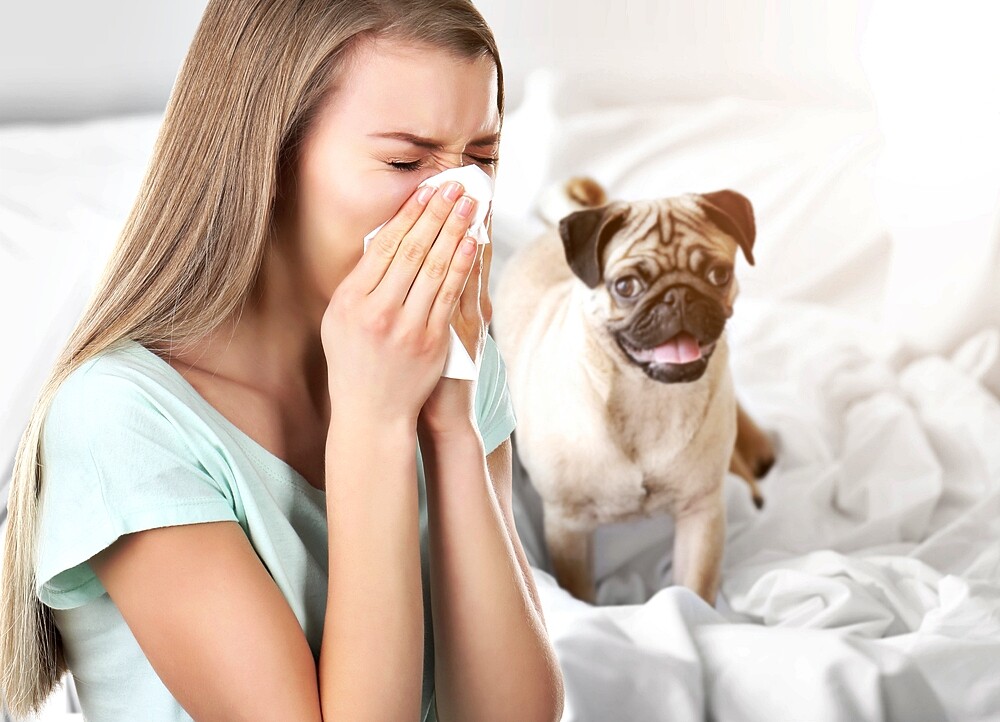A dog allergy is particularly unpleasant for those affected. We explain what causes a dog allergy can have and which treatment helps.
What is a dog allergy?
Similar to the cat allergy, the dog allergy (incorrectly known as dog hair allergy) is one of the animal hair allergies. It is not the hair that causes the symptoms, but certain proteins that are found in the skin scales, saliva or urine of the animals. The hair merely ensures a faster spread of the allergen. A dog allergy causes typical allergy symptoms such as itching and rhinitis. The symptoms can be treated with medication, and in the long term, hyposensitisation can also help.
Since dogs are among the most popular pets in the USA and are constantly encountered in everyday life, it is difficult for people affected by an allergy to avoid the allergen. By the way, the same allergens are found in all dogs, but they are strong or weak depending on individuality and breed. This means that allergy sufferers may develop symptoms on contact with a German shepherd dog, but not on contact with a dachshund.
It is often assumed that allergic reactions are more likely to occur in dog breeds with short hair than in dogs with long hair – but this has not been proven. On the other hand, dog allergens are generally considered to be less aggressive than allergens in a cat and do not spread as quickly through the air.
Symptoms of a dog allergy
The symptoms caused by an allergic reaction are similar to those of hay fever. In the case of an allergy, a person affected often reacts with the following symptoms:
- Itching
- Tearing and/or burning eyes
- Sniffles
- Irritation of sneezing and coughing
- Neck Scratching
- Skin redness and swelling
- Respiratory distress (in severe cases)
The symptoms usually occur immediately after contact with dogs and can therefore, unlike, for example, house dust allergy or nickel allergy, often be attributed relatively quickly to dog allergy. With a prick test, antibodies against the allergen in question can be easily detected by a doctor.
What helps with an allergy to dogs?
An allergy to dogs can be treated causally by hyposensitization. Ointments containing cortisone and antihistamines, for example, can help relieve the symptoms. And even if it’s not easy, allergy sufferers should try to avoid contact with dogs as much as possible – this includes not touching any of their dog’s objects (such as toys or a blanket).

